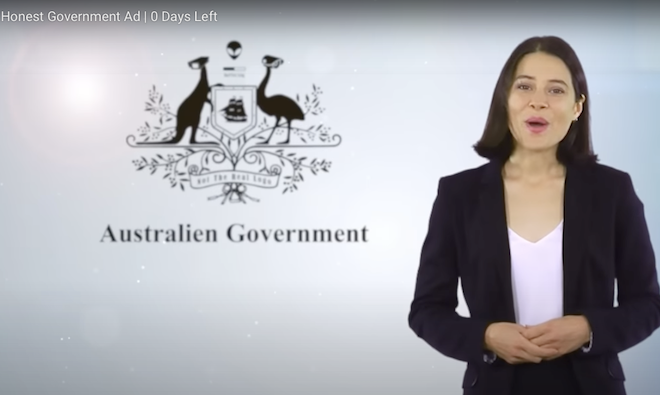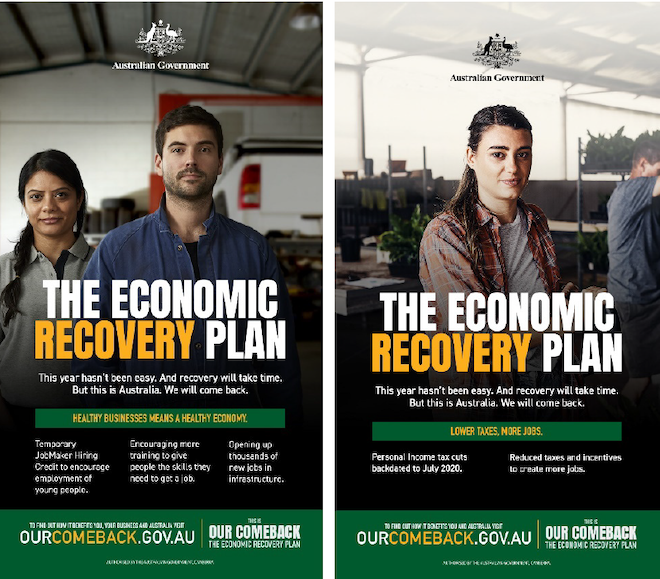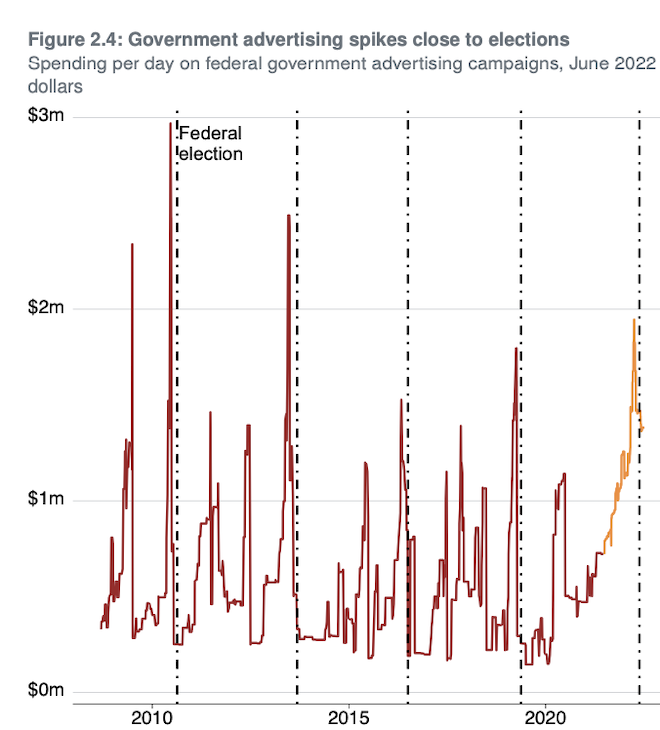The political message machine
 Polly Peck •
Polly Peck •  Monday, October 31, 2022
Monday, October 31, 2022 Government propaganda ... Advertising expenditure by state and federal governments ... Money is no object ... Taxpayer funds for political purposes ... Another version of pork-barrelling ... Hugh Vuillier reports
 Juice Media
Juice Media
In the period between 2020 and 2021, the government of Victoria in real terms spent more on advertising than the government in Canberra - even though the state's total expendidure represented only 13.3 percent of the Commonwealth's total spending in the same period.
The disproportionate growth of government campaigns is an identifiable trend across Australia - its proliferation at the state and federal level frequently revealing a wasteful use of tax revenues.
The primary driver for the recent increase in government ad spend has been the public health campaigns surrounding the Covid-19 pandemic.
In Victoria, these campaigns made up around 36 percent of the government's $147.3 million advertising expenditure.
The federal government spent $145.3 million in 2020-21, however, it preferred to emphasise its economic policies around the pandemic.
A report by the Department of Finance reveals that more was spent advertising the Treasury's Covid-19 economic response ($30.9 million) than by the Department of Health on Vaccine communication ($26.8 million).
≈ ≈ ≈
Certain kinds of government advertising campaigns have hallmarks of pork barrelling - straddling an objective in the public interest and a political agenda.
A recent report by the Grattan Institute critically analysed the gradual politicisation of government advertising.
It revealed that of the nearly $200 million spent annually by the federal government on public advertising, it estimated that nearly $50 million was spent on "politicised" campaigns - advertisements that are encrusted with political statements, or slogans and colour schemes from political parties.

Some campaigns fulsomely promote government agendas and their outcomes.
In Victoria, a 2022 campaign openly criticised the federal government's allocation of infrastructure spending to the state, while also promoting its own state-funded public works.
The Auditor-General of Victoria found that the most of the advertisements broadcast from the "Our Fair Share" campaign was political in nature.
The report explains:
"At the time the advertisements were published, Victorian government ministers were involved in public disputes with Commonwealth government ministers about school funding, national health reform funding and funding for major road projects."
≈ ≈ ≈
The Grattan Institute's report showed the extent to which the promotion of politicised or even perfectly justified advertisements intensified before or during election periods.

These campaigns take many different forms - campaigns timed to upholster the incumbent government's image, or ads promoting issues existing at the centre of the election debate.
The anti-people smuggling advertisements leading up to the 2013 Federal election, in which illegal immigration was a major campaign issue, are not such a distant memory.
≈ ≈ ≈
There is also a tendency for federal and state government advertisements to promote policies before they were implemented, and even for some which never got off the ground.
One campaign for the National Plan for School Improvement campaign in 2013 ran before any reforms were passed by parliaments.
In some cases, advertisements were even made in states which had not even signed on to the program.
Between 2014 and 2015, $10 million was spent by the Commonwealth government to promote the Higher Education Reforms before they was ultimately rejected by the Senate.
Last year it was reported that the Commonwealth, Victorian and New South Wales governments were among the top five advertisers in the country.
 Advertising,
Advertising,  Politics
Politics 








Reader Comments